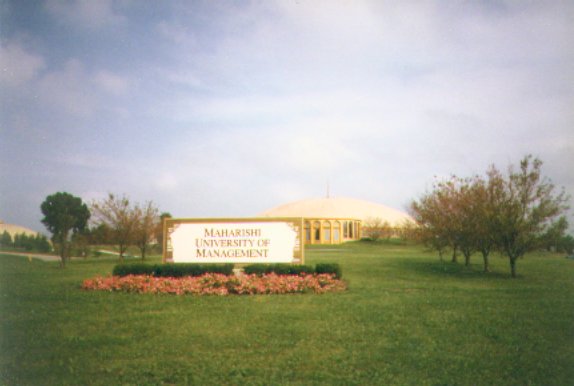I thought my home town wasn't all that special other than, of course, that I live here. But today I found out that there were many special things about Fairfield, Iowa. Here are a few of them:


** The first Iowa State Fair was held in Fairfield, Iowa from October 25 to 27, 1854. Fairfield also hosted the second Iowa State Fair in 1855.
** Fairfield also established the first country club and private golf course west of the Mississippi River in 1892.
Address: Fairfield Golf & Country Club, 905 E. Harrison Avenue, P.O. Box 549, Fairfield, Iowa 52556; 641-472-4212; Fax: 641-472-6792. Email:
countryclub@lisco.com.

** Fairfield was the first town in America to establish a municipal electric utility. In 1882, Fairfield operated an electric power plant that lit 13 streetlights and six Brush arc lamps which lit up the square from a tower in Central Park (see postcard above). I once lived in an apartment in the retail building with the turret in the center of the postcard.

** Fairfield has the first Carnegie Library built in a town where Andrew Carnegie had no business connections or investments. The library was established in 1893.
** The first monorail conveyer system was built in Fairfield in 1919 for the Louden Manufacturing Company. Louden overhead conveyor systems and crane equipment have been installed in factories throughout the world.

** William Louden of Louden Machinery Works in Fairfield invented a number of barn improvements, including the first flexible sliding barn door hanger, the first litter carrier, the first practical all-steel cow stall, the first automatic drinking bowl for cows, the first practical manure spreader, and the first free barn planning service (1907).
On September 24, 1867 William Louden received his first patent for a device which helped farmers stack hay efficiently. The Louden Machinery Company continued to develop and manufacture a variety of hay tools that allowed a farmer to easily and efficiently move and store hay.

** In 2003 the National Council of Small Communities named Fairfield the top entrepreneurial small city in America by awarding the inaugural Grass Root Entrepreneurship Award.
Address: Fairfield Area Chamber of Commerce, 204 West Broadway, Fairfield, Iowa 52556; 641-472-2111; Fax: 641-472-6510. Email:
chamber@fairfieldiowa.com. Web:
http://www.fairfieldiowa.com.


Fairfield is also home to Maharishi University of Management, the home of the Golden Domes for TM Siddhi flyers.









